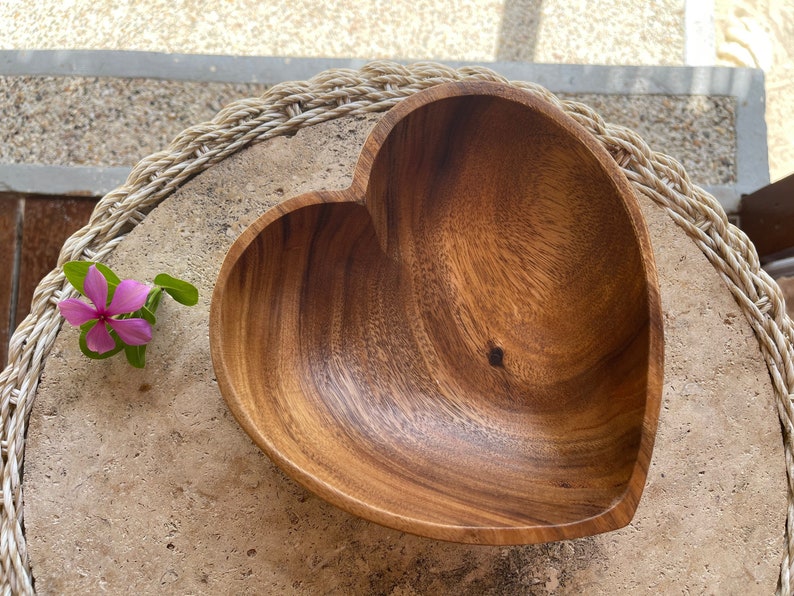News
The Eco-Friendly Benefits of Choosing Handmade Wooden Bowls
In today’s world, environmental awareness is influencing consumer choices more than ever. As people seek sustainable alternatives to mass-produced goods, handmade products have gained popularity for their craftsmanship and eco-friendly benefits. Choosing handmade is not just about aesthetics—it is a conscious decision to reduce environmental impact and support ethical production.
1. Reduced Environmental Impact
Why it matters:
Mass production requires large-scale factories, high energy consumption, and generates significant waste. In contrast, handmade goods are crafted in small batches with minimal electricity use and fewer resources, significantly reducing their environmental footprint.
Example: A handcrafted wooden bowl made from sustainably sourced acacia wood is shaped and finished using traditional techniques, requiring far less energy than factory-made alternatives.
2. Sustainable and Ethical Materials
Why it matters:
Handmade artisans often prioritize responsibly sourced natural materials, ensuring their products are biodegradable, recyclable, or derived from renewable sources. By avoiding synthetic materials, these products have a lower environmental impact.
Example: A wooden bowl crafted from sustainably harvested acacia wood showcases the beauty of natural grains while being an eco-friendly alternative to plastic or mass-produced ceramic bowls.
3. Minimal Waste and Overproduction
Why it matters:
Large-scale manufacturing often leads to excess production, resulting in unsold stock and unnecessary waste. Handmade products, however, are typically made to order or in small batches, significantly reducing waste.
Example: Skilled artisans make use of every part of the wood, repurposing smaller pieces into coasters or decorative accents, ensuring minimal material waste.
4. Lower Carbon Footprint
Why it matters:
Mass-produced goods undergo multiple transportation stages—from raw material sourcing to factory production and global shipping—resulting in high carbon emissions. Handmade products, especially those crafted by local artisans, follow a much shorter supply chain.
Example: Purchasing a handmade wooden bowl from a local artisan reduces the need for long-distance shipping, lowering the overall carbon footprint.
5. Eco-Friendly Packaging
Why it matters:
Industrial packaging often includes plastic and other non-recyclable materials that contribute to environmental waste. Handmade businesses tend to use minimal, recyclable, or biodegradable packaging, reducing plastic pollution.
Example: A handcrafted wooden bowl wrapped in a fabric pouch or kraft paper instead of plastic offers a more sustainable packaging alternative.
6. Supporting Local Artisans and Sustainable Economies
Why it matters:
Buying handmade means supporting artisans who uphold ethical craftsmanship, often using locally sourced materials and sustainable production methods. This not only reduces environmental harm but also strengthens local economies.
Example: A hand-carved wooden bowl is more than just a kitchen essential—it represents cultural heritage, skilled craftsmanship, and the livelihood of local artisans.
7. Longevity and Durability
Why it matters:
Handmade products are often made with high-quality materials and superior craftsmanship, resulting in long-lasting items. A well-crafted product reduces the need for frequent replacements, minimizing overall waste.
Example: A carefully hand-carved acacia wood bowl is highly durable, offering years of use compared to cheaply manufactured alternatives that wear out quickly.
8. Personal and Emotional Value
Why it matters:
Handmade goods often carry a personal story and emotional connection, encouraging consumers to appreciate, care for, and keep them longer rather than discarding them.
Example: A hand-carved wooden bowl is not just a serving dish—it is a meaningful piece that brings warmth and character to any home.
Conclusion
Choosing handmade products is a step toward a more sustainable lifestyle. From reducing environmental impact to supporting ethical craftsmanship, handmade goods offer a meaningful and responsible alternative to mass production. By investing in a handcrafted wooden bowl, you are not only embracing unique artistry but also making a conscious choice to support sustainability and preserve traditional craftsmanship.

